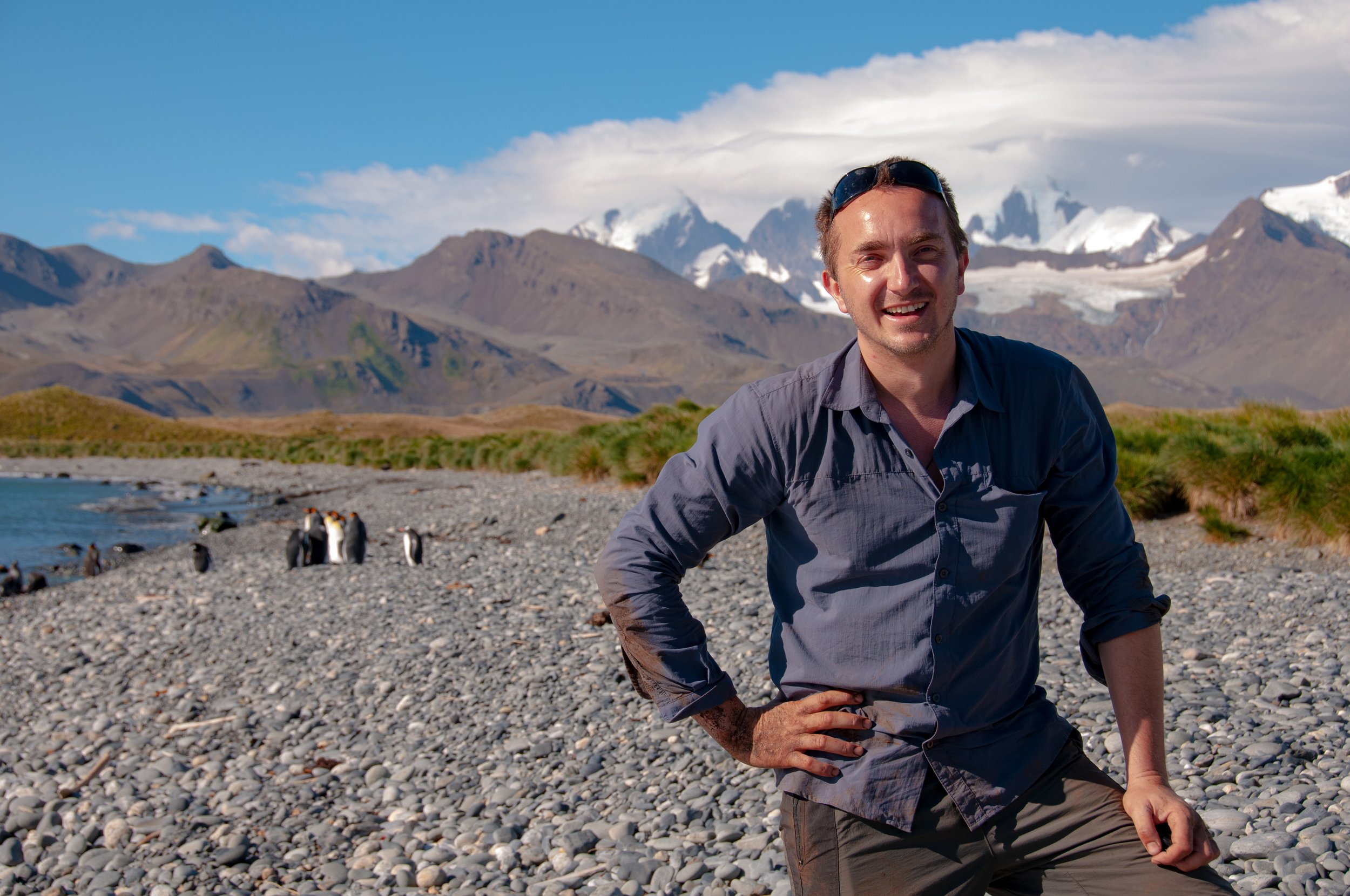The tipping point: CarbonScape biographite technology scaling at critical time
CarbonScape’s revolutionary biographite technology is poised to replace one of the most polluting parts of an electric vehicle’s battery, the graphite anode.
It comes not a moment too soon in the race to decarbonise the global economy, says CarbonScape co-founder and world-renowned climate scientist Professor Chris Turney, on his most recent visit to CarbonScape’s pilot facility.
“Electrification is 101. It’s the simplest, easiest thing to help decarbonise our economy.”
“We have one moment where we can turn this around. And CarbonScape means we can make this transition at speed and scale.”
Acclaimed Earth scientist Chris, who has been working on climate change for 25 years, says it’s clear global heating is already causing a “disrupted world”, and the time to act is now.
On a recent expedition to Antarctica – the sixth for the author and Pro-Vice Chancellor of Research at the University of Technology Sydney – Chris was horrified to find sea ice along the Antarctic Peninsula collapsing.
“Sea ice surrounding the Antarctic is at the lowest level we’ve ever seen. It is such an important part of our planet’s system for regulating the carbon budget and our climate. It’s been described as the air conditioning for the planet - and many of the areas around the continent this summer are now largely ice free,” he says.
”All the horrendous changes we’re seeing today are happening on the back of 1.1 degrees Celsius of warming. We want to keep global temperatures below 2°C to avoid irreversible changes to our climate. Think collapse of the West Antarctic ice sheet, or die-off of the coral reefs - but carbon emissions are not heading the right way.”
A halving of global greenhouse gas emissions is needed by 2030 to avoid reaching that 2°C, says Chris. That means decarbonising the global economy through mass electrification, for which cleantech like CarbonScape’s plays a significant role.
CarbonScape’s patented technology produces net carbon negative biographite anode for lithium-ion batteries in electric vehicles (EVs). It is made from a sustainable biomass feedstock: abundantly available timber industry and forestry waste streams. The technology will replace polluting graphites currently used in EV batteries, while localising and decarbonising global supply chains.
“Electrification is 101. It’s the simplest, easiest thing to help decarbonise our economy. The opportunity’s amazing,” says Chris. “This is not just a ‘wouldn’t it be nice’ – it just needs to be deployed at scale. And the exciting thing is, we’re already seeing electrification happening across the world.”
“The world needs hope that we can decarbonise quickly. What CarbonScape is doing with biographite is critical for showing what is possible to help move the dial.”
The potato that sparked a world-first climate solution
In a tale often told, CarbonScape began with a potato and bad cooking.
Aged 13, Chris was instructed to microwave a potato for 20 minutes each side for dinner. Shortly after he turned the already soft potato for its second round, smoke billowed from the house.
Chris threw the potato and microwave plate out the door. Nursing burned hands, he gazed across a scene of black and glowing embers among smashed glass. “I thought, oh my gosh, I’ve created coal. But I haven’t burned the house down.”
Many years on, Chris and his wife Annette emigrated from the UK to New Zealand, followed by Chris’ parents. His father Ian, a forester, worked in sustainability, including pioneering work in biodiversity and research around net zero.
Chris then moved to Australia, digging up 40,000-year-old charcoal for carbon dating. With his father, he started talking about charcoal fixing carbon.
“That prompted me to start playing around with some tests.”
Results weren’t promising, but then Chris remembered the potato. He bought a microwave to turn individual woodchips into charcoal but was unsuccessful.
“Then Annette pointed out, ‘darling that’s not how a microwave works’, you need a bowl… and I did that, set it for eight minutes and went off for a walk. A couple of minutes later I had that cold feeling in my stomach that I was repeating the exercise when I was 13.”
Chris crunched the numbers and realised that, even in places like Australia which has “horrendous carbon emission for electricity”, what he produced was net carbon negative.
“The bottom line is, it worked.”
“We’re so close to a tipping point. Why would you invest in fossil fuel companies?”
The growing appetite for cleantech
Chris launched CarbonScape in 2006 with several founders including current Non-Executive Director Tim Langley.
The startup’s initial focus on producing green coke using microwave technology changed to sustainable biographite anode material for lithium-ion batteries in 2016.
“Graphite was right there early on, that was a potential route,” says Chris. “One of the fascinating things with the journey is that the market’s changed in all different ways, and we’ve followed where the market is. We kept (graphite) there, kept it warm, and now it’s just gone in an amazing direction.”
Now, as CarbonScape commercialises its biographite technology in the key EV markets of Europe and North America, investment in climate solutions “is insane”, says Chris, driven by broader geopolitical and supply chain issues, and the urgent need to achieve sustainability.
“It’s environmentally friendly, it will spark off all sorts of other employment for people and it enhances biodiversity as well.”
He has noticed an increasing shift in investment towards green technologies and associated future employment opportunities. ”We’re so close to a tipping point. Why would you invest in fossil fuel companies?”
Chris says the global goal of limiting warming to the 1.5°C target is “incredibly ambitious” but seeing CarbonScape scale biographite production internationally gives him genuine hope.
“The technology exists. The world needs hope that we can decarbonise quickly. What CarbonScape is doing with biographite is critical for showing what is possible to help move the dial.”




